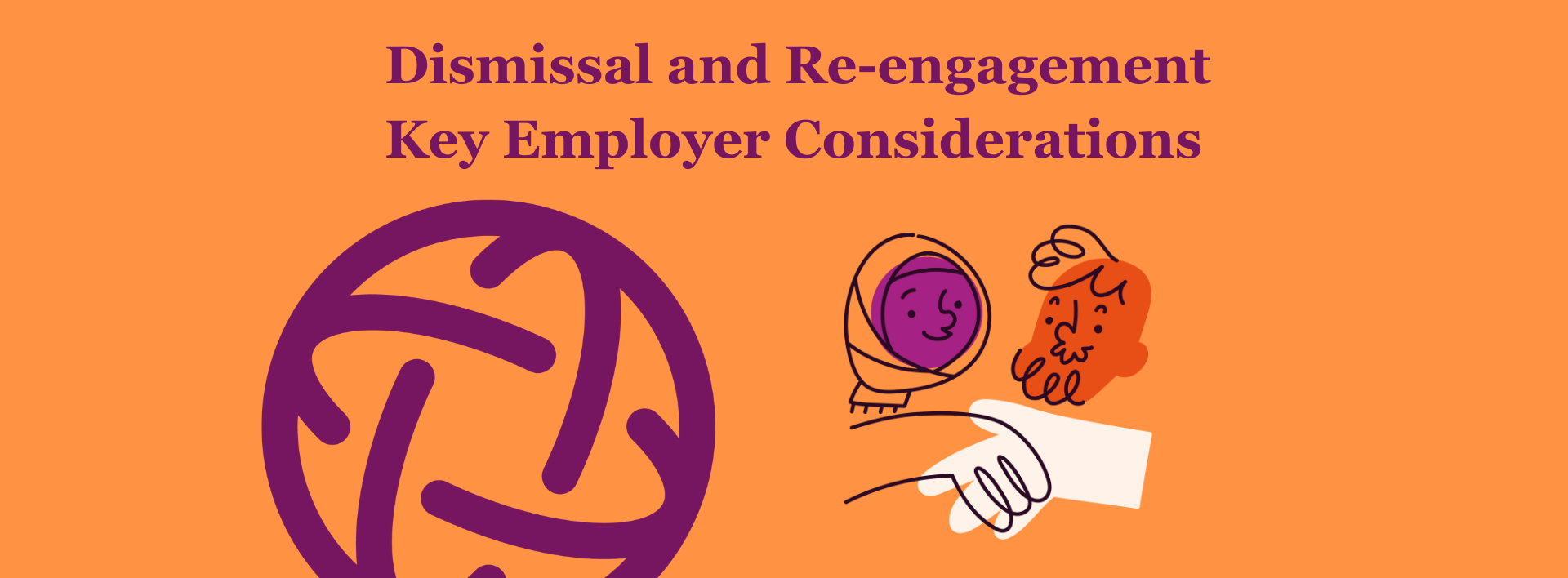In this blog our Christine Medland talks about key considerations of dismissal and re-engagement as well as how this ties in with new Unfair Dismissal Protections from Day 1.
Dismissal and re-engagement, commonly known as “fire and rehire,” continues to be a hot topic in UK employment law. As businesses face increasing economic pressures, they may consider altering employee terms and conditions through this approach. However, while fire and rehire is not unlawful, it can be a risky strategy, both in terms of legal compliance and employee relations. Recent developments, such as the landmark Tesco vs. USDAW case, have reinforced the need for employers to tread carefully when using dismissal and re-engagement to force contractual changes.
In this high-profile case, Tesco sought to remove “retained pay” from workers’ contracts – a benefit promised to incentivise relocations – by dismissing employees and offering to rehire them under new terms. The UK Supreme Court ruled in favour of the workers, declaring that retained pay was a permanent right under the original employment agreement. As a result, Tesco was prohibited from removing the benefit via dismissal and re-engagement. This ruling serves as a powerful reminder to employers that fundamental contractual obligations cannot be easily undone.
The Legal Risks of Fire and Rehire
Employers should be aware that while the strategy is still legally permissible in some circumstances, it is becoming a last-resort option. The upcoming statutory Code of Practice on dismissal and re-engagement, welcomed by the Chartered Institute of Personnel and Development (CIPD), introduces stricter guidelines for employers.
The draft Code, issued under section 203 of the Trade Union and Labour Relations (Consolidation) Act 1992, requires businesses to engage in meaningful consultation with employees before making any significant contractual changes. Employers must demonstrate that they have explored all alternative options before resorting to dismissal and re-engagement. Failure to do so could result in increased penalties, such as higher awards in unfair dismissal claims, and reputational damage.
CIPD has consistently highlighted the importance of transparency and fairness in managing workplace changes. According to their guidance, employers should use fire and rehire only when absolutely necessary and ensure that affected employees are given a voice in the process. Poorly managed attempts to enforce new terms through this practice can lead to long-term damage to employee morale, reduced trust, and ultimately, lower productivity.
Unfair Dismissal Protections from Day 1
The recent legal developments around fire-and-rehire practices also tie into broader legislative conversations about employee protections. Currently, employees in the UK can only claim unfair dismissal after two years of continuous service. However, there are growing calls to extend unfair dismissal protections from day one of employment. This shift would give employees greater leverage in cases where fire-and-rehire practices are used, significantly curtailing employers’ ability to dismiss and re-engage staff as a means of introducing less favourable terms.
Extending these protections could lead to a major change in how businesses approach workforce restructuring and contract negotiations. If employees gain the right to claim unfair dismissal from day one, employers will need to reassess their approach to managing costs and operational changes.
Why Stay Informed?
Employers can no longer afford to manage contractual changes reactively. Instead, they must be proactive in understanding and complying with evolving legal standards. One way to do this is by staying up to date with upcoming labour law changes. Our downloadable guides on labour legislation changes provide invaluable insights into the latest developments in employment law, helping you to avoid costly legal pitfalls.
Our Legislation Changes Information downloads will keep you up to date with key legislative changes and stay ahead of compliance issues.
Want to find out more about our services or how we can help? Why not book a call with us, 20 min call – Gravitate HR.
Keep an eye out on our LinkedIn for what we are working on and to get to know the team!
